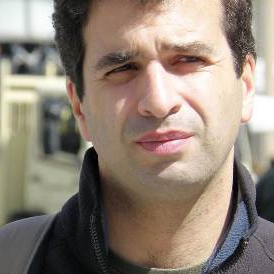Estuarine, Coastal Circulation and Exchange Processes
A special issue of Journal of Marine Science and Engineering (ISSN 2077-1312). This special issue belongs to the section "Physical Oceanography".
Deadline for manuscript submissions: closed (15 August 2023) | Viewed by 500
Special Issue Editors
Interests: estuarine and coastal physical oceanography; stratification/mixing; estuarine biogeochemistry; hydrodynamic and biogeochemical modelling
Special Issues, Collections and Topics in MDPI journals
Interests: physical oceanography; estuaries and lagoons; coastal processes; climate change; coastal flooding; tidal processes; numerical modeling
Special Issues, Collections and Topics in MDPI journals
Interests: climate change; coastal oceanography; coastal estuarine dynamics; aquaculture; numerical modelling; marine pollution
Special Issues, Collections and Topics in MDPI journals
Special Issue Information
Dear Colleagues,
Estuarine and coastal regions are dynamic interface areas where land, water and atmosphere interact in a balance constantly changed by natural and anthropogenic influences. They are among the most populated areas of the planet, suffering high stress, related to both human activities and climate change. Understanding the processes of estuarine circulation and transport in estuaries and coastal waters is critical to study the dynamics of these systems. The controlling mechanisms of such processes vary according to estuary type, tidal, river and meteorological forcing factors that have a major role in the mechanisms of physical change, exchange flow between the estuary and the coast, primary production and water quality. The interaction between the estuary and the coast is controlled by the persistent inflow of salty water and outflow of fresher water from the mixing region of estuaries. As a result, this interaction controls heat and salt transport, residence time or biogeochemical gradients inside estuaries. All these processes can be studied using high-resolution numerical models and in-situ and remote sensing data. Several methodologies can be implemented to study marine systems according to their variability and dynamics. Here, we propose a Special Issue to cover these topics, highlighting numerical model implementations and observational studies of hydrodynamic and water quality processes along the salinity gradient of the estuary-coastal continuum.
Prof. Dr. Nuno Vaz
Prof. Dr. João Miguel Dias
Dr. Magda Catarina Sousa
Guest Editors
Manuscript Submission Information
Manuscripts should be submitted online at www.mdpi.com by registering and logging in to this website. Once you are registered, click here to go to the submission form. Manuscripts can be submitted until the deadline. All submissions that pass pre-check are peer-reviewed. Accepted papers will be published continuously in the journal (as soon as accepted) and will be listed together on the special issue website. Research articles, review articles as well as short communications are invited. For planned papers, a title and short abstract (about 100 words) can be sent to the Editorial Office for announcement on this website.
Submitted manuscripts should not have been published previously, nor be under consideration for publication elsewhere (except conference proceedings papers). All manuscripts are thoroughly refereed through a single-blind peer-review process. A guide for authors and other relevant information for submission of manuscripts is available on the Instructions for Authors page. Journal of Marine Science and Engineering is an international peer-reviewed open access monthly journal published by MDPI.
Please visit the Instructions for Authors page before submitting a manuscript. The Article Processing Charge (APC) for publication in this open access journal is 2600 CHF (Swiss Francs). Submitted papers should be well formatted and use good English. Authors may use MDPI's English editing service prior to publication or during author revisions.
Keywords
- hydrodynamics
- climate change
- water quality
- numerical models
- data
- salinity gradient
- estuaries







